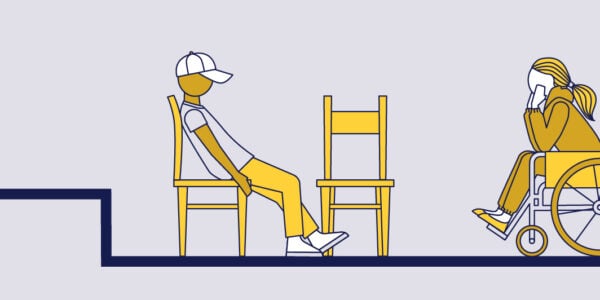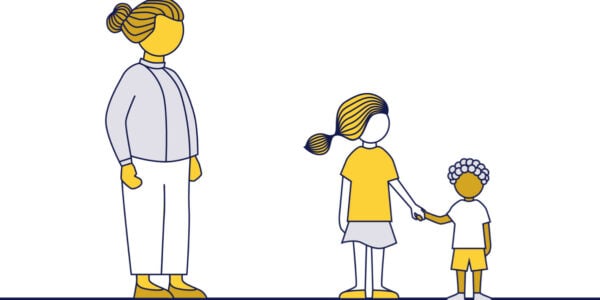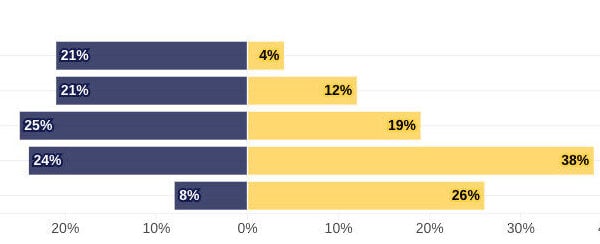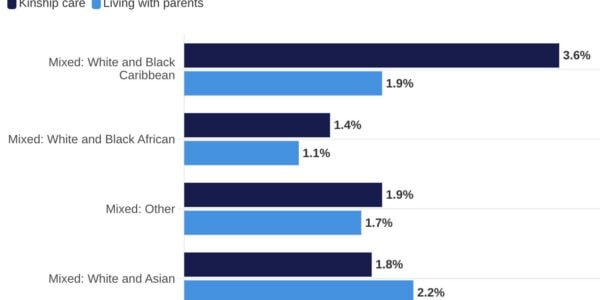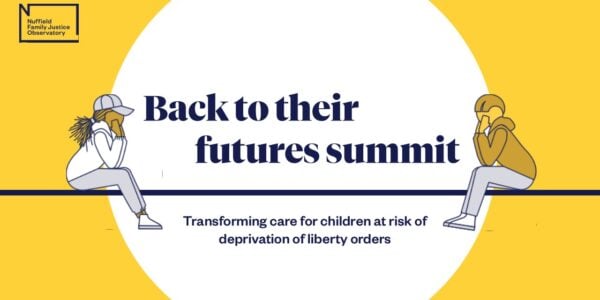Young people and the family justice system
How can we promote better outcomes for young people and their families?
Menu
Our aim is to shine a light on the sharp increase of older children and young people who are being taken into care, which has prompted concerns about the ability of the family justice system to respond to their needs.
Why do we need research into young people and the family justice system?
We know that more older children are coming to the family courts with a range of complex behavioural, extrafamilial and mental health challenges.
Public law applications involving young people aged 15–17 have doubled since 2012 (from 1,171 in 2012 to 2,239 in 2025) and the number of looked-after children has seen a particular rise among children aged 10–15.
We do not know enough about these young people and what happens to them before, during and after their interactions with the family justice system. We do not know enough about their outcomes or the impact of decisions on their families or communities.
What we are doing
- We bring together research and the insights of young people, professionals, researchers, and practitioners, to identify ways to improve support for young people involved with the family justice and those in care. We use data to shine a spotlight on this group of children and young people and convene discussions across the family justice system on how to facilitate change.
- Our 2021 report provided the first national overview of older children and young people in care proceedings using administrative data held by Cafcass and Cafcass Cymru revealing that the number of 10-17-year-olds subject to care proceedings rose by 95 per cent between 2011/12 and 2019/20.
- Working with Research in Practice we commissioned an analysis of four local authorities’ existing data and evidence about the reasons for adolescents coming into proceedings and their trajectories during and after proceedings.
- In 2022 we published The care files, which explore the experiences of teenagers entering the care system. Every young person who has been in care has a ‘care file’ created by social services, but this was an opportunity for young people to create their own care file and their story from their perspective.
- Following this we published a briefing paper looking at how we can better meet the needs of young people in care. The briefing paper provides an overview of the main themes emerging from a series of 12 filmed interviews with professionals, academics, and people with lived experience.
- We have also published insights into the routes into care for young people in Wales.
- Children subject to deprivation of liberty (DoL) orders are among the most vulnerable children in England and Wales and living with severe restrictions on their day-to-day freedoms. 1,280 children were subject to DoL applications in 2024.
- Little was known about these children when we turned our attention to them – how old they were, their gender, their ethnicity, what their circumstances, needs or experiences are – they were until very recently invisible in national administrative data. We have tried to fill these evidence gaps and highlight the increasing use of these types of orders and explain why their use is increasing.
- In collaboration with a group of expert academics and clinicians, we then developed five principles of care for children with complex needs and circumstances – including those with a DoL order. We were then able to gather the thoughts and views on these principles from young people who are either in care or care experienced (and have experience of a DoL order.) We presented a range of first-hand experiences offering vital insight and evidence. We have also worked with artist Trevor Appleson to create a zine, film and photo exhibition where seven young people tell their stories of being on a DoL order. The art project, called ‘A Normal Life’ offers a depth of insight previously unavailable.
- We continue to convene events, and discussion about these restrictive orders and in 2025 organised and hosted the UK’s first ever national conference about children with complex needs and the use of deprivation of liberty orders. We are working with frontline practitioners and policy makers to identify how to improve care for young people in these circumstances and we will publish a ‘Case for Change’ in 2025.
Explore our research on young people and the family justice system
Type

Infographic
What do we know about children in the family justice system?
Our infographic pulls together what we know, and what we don’t know, about children’s journeys through the family justice system from national data.

